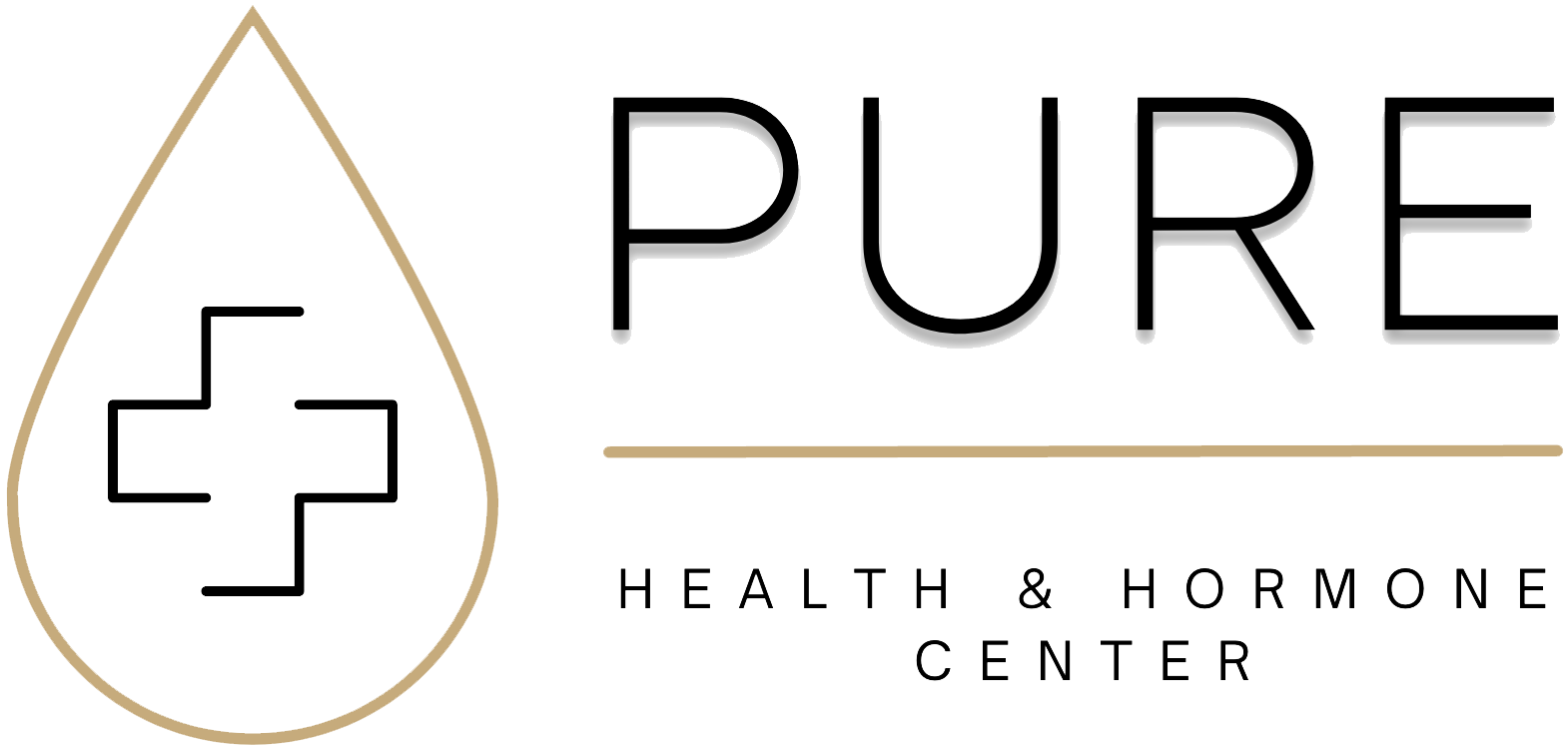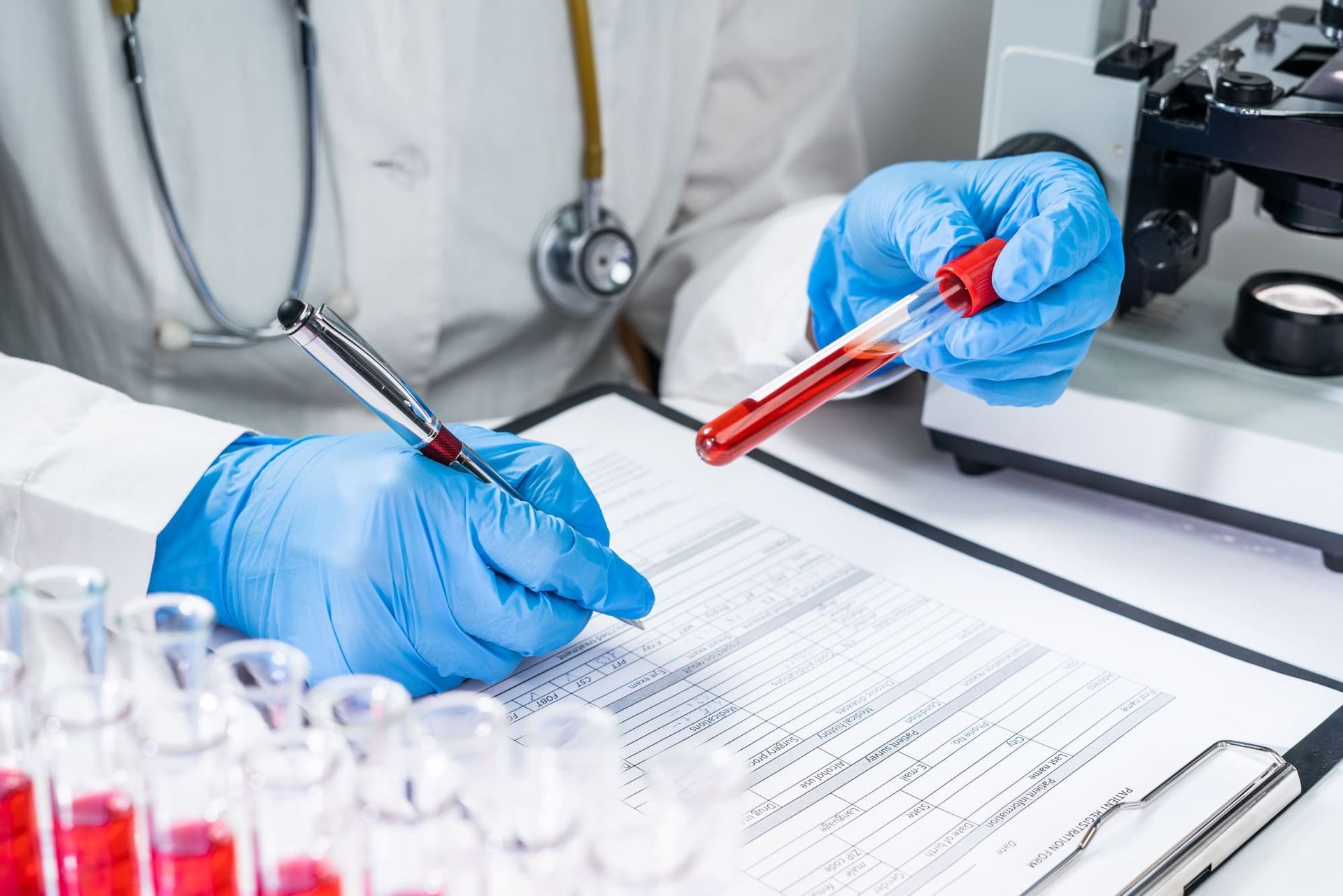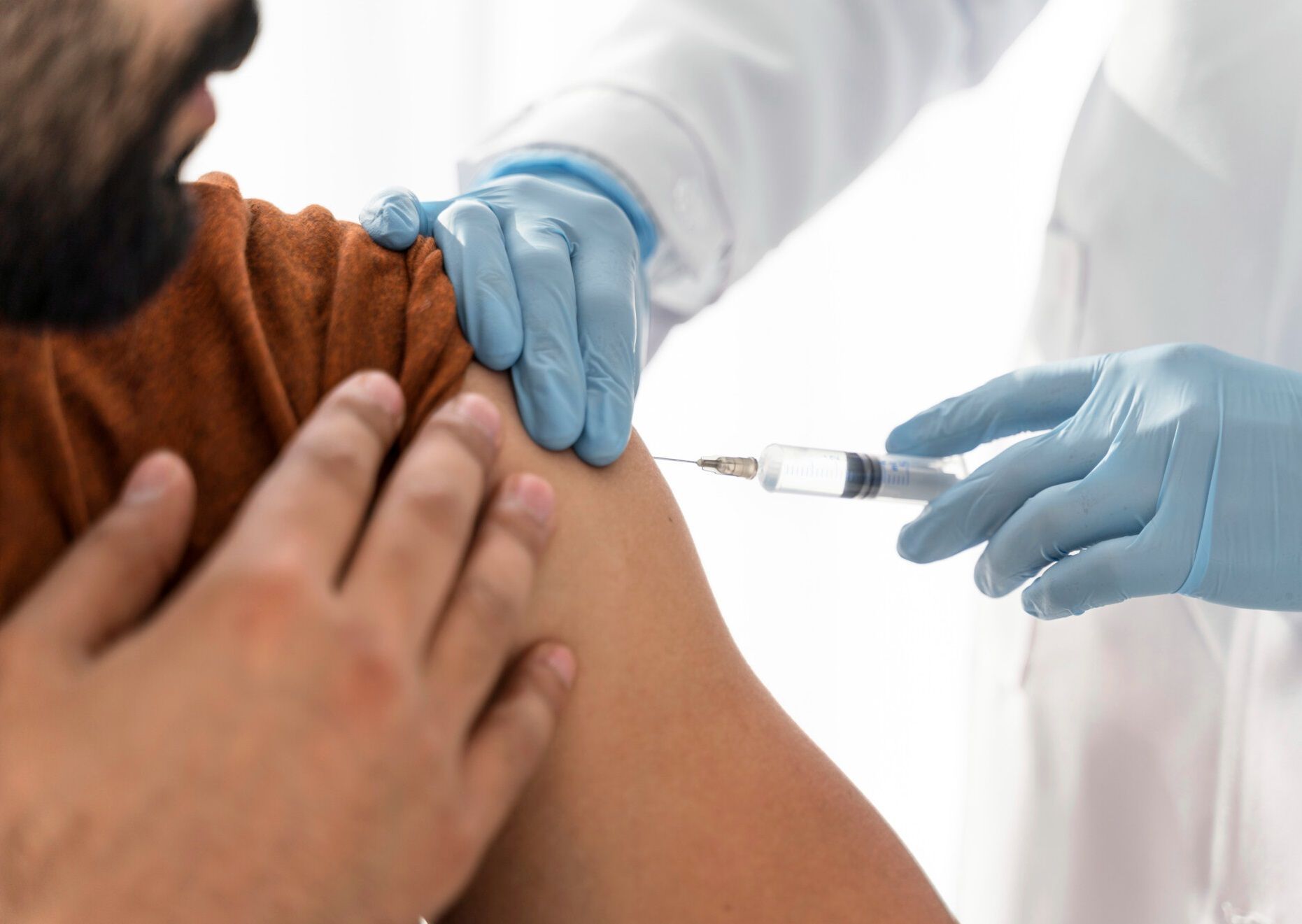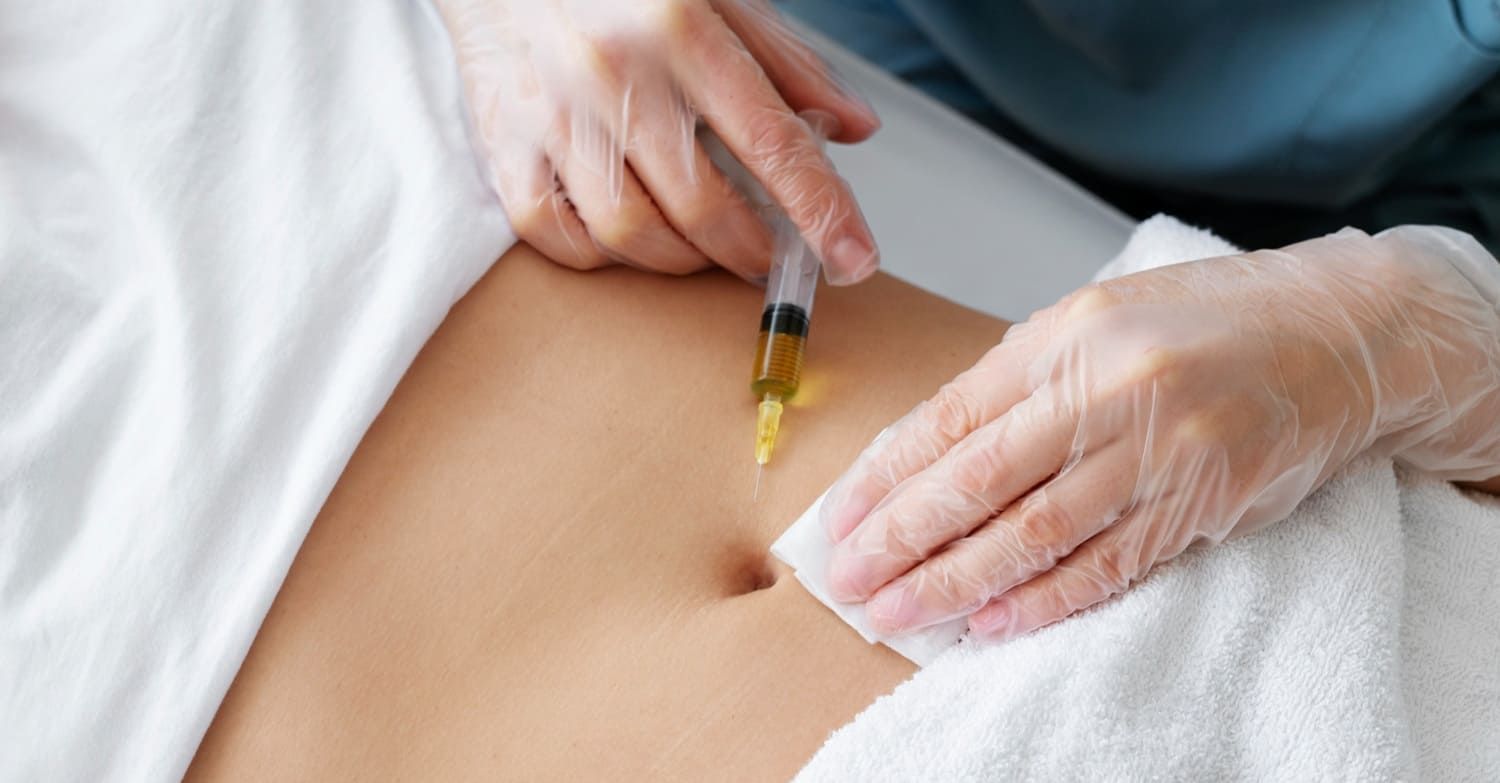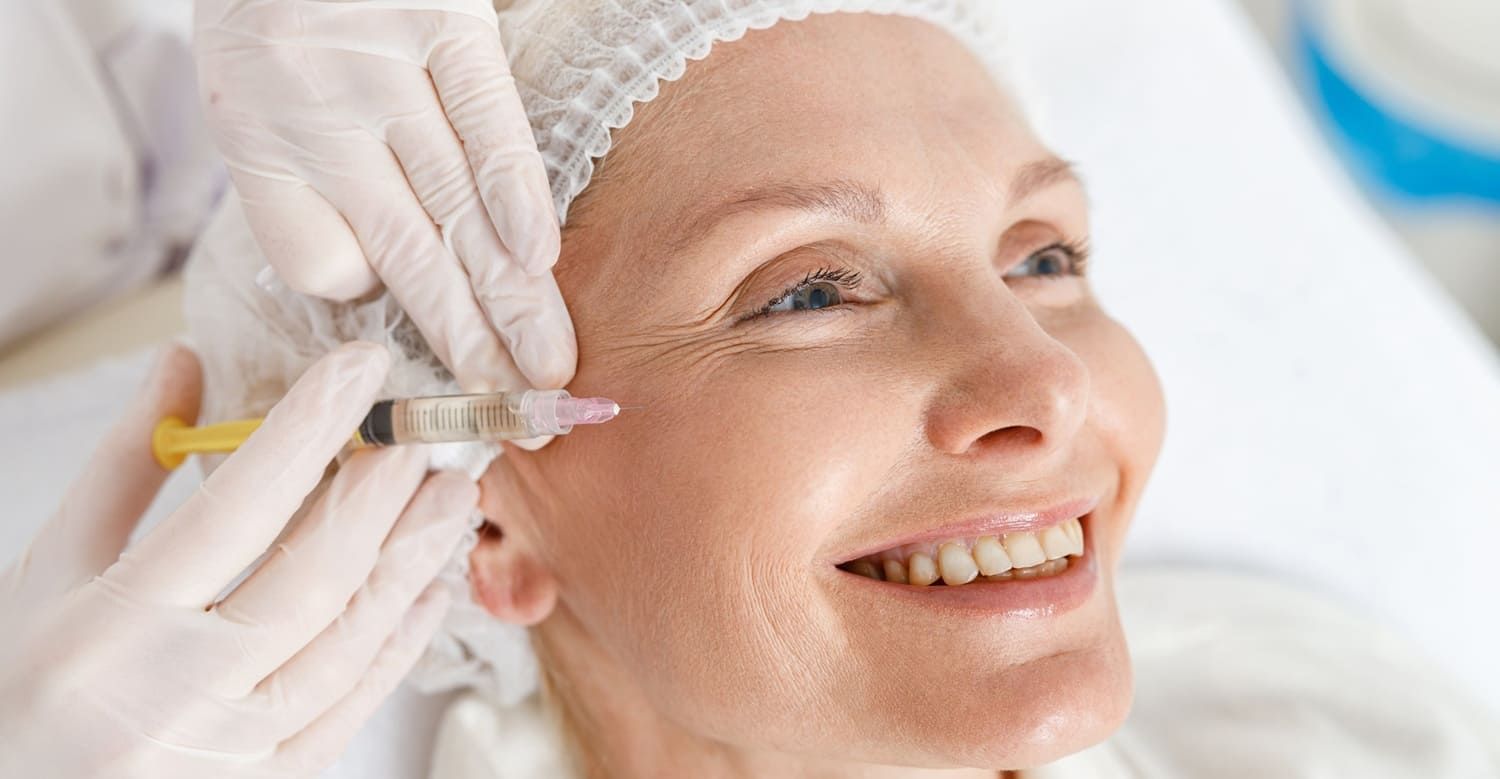Hormone Therapy Options for Men and Women
Hormone therapy is a powerful tool in modern medicine. It can help manage hormonal imbalances in both men and women.
But what exactly is hormone therapy? And how does it work?
This article will explore these questions. We'll delve into the various hormone therapy options available for men and women.
We'll discuss the benefits and risks of hormone replacement therapy. We'll also touch on testosterone therapy, a common treatment for men with low testosterone levels.
Finally, we'll guide you on how to find hormone replacement therapy services near you.
Whether you're considering hormone therapy or simply want to learn more, this article is for you. Let's embark on this journey to better understand hormone therapy and its role in health and wellness.

Understanding Hormone Therapy
Hormone therapy addresses hormonal imbalances in the body. These imbalances can lead to various health issues.
This therapy involves supplementing deficient hormones. It can also involve balancing hormone levels to alleviate symptoms.
Several forms of hormone therapy exist. Each type targets specific hormonal needs in men and women.
Common reasons for hormone therapy include menopause, andropause, and low testosterone. Each condition has unique symptoms and treatments.
Here's a brief list of different hormone therapies:
- Hormone Replacement Therapy (HRT): Often used in women during menopause.
- Testosterone Therapy: Primarily for men with low testosterone.
- Bioidentical Hormones: An alternative option for hormone replacement.
Consultation with a healthcare provider is crucial. This ensures the right therapy for individual needs.
What is Hormone Therapy?
Hormone therapy involves using hormones to treat medical conditions. It can help balance hormones that are too low or unbalanced.
This therapy is important for managing symptoms like fatigue and mood swings. Hormone therapy also addresses weight gain and decreased libido.
People use it for temporary or ongoing treatments. It depends on their specific health goals.
The Role of Hormones in Health
Hormones play a crucial role in regulating body functions. They impact metabolism, mood, and sexual function.
Imbalances can disrupt these processes, affecting health and well-being. For example, low hormone levels can lead to fatigue and other issues.
Proper hormone levels are essential for a balanced life. They help maintain energy, mood stability, and physical health.
Hormone Therapy for Women
Hormone therapy is significant for many women, especially during menopause. Menopause is a natural phase in life, marked by declining estrogen levels. Hormone therapy can alleviate its disruptive symptoms.
Women often choose hormone therapy to improve their quality of life. Hormone Replacement Therapy (HRT) is the most common method for addressing menopause symptoms. It primarily involves estrogen and sometimes progesterone.
Here are some conditions hormone therapy aims to help:
- Menopause: Reducing hot flashes and night sweats.
- Osteoporosis: Protecting bone density.
- Mood Swings: Stabilizing emotions.
The therapy comes in different forms, including pills and patches. Choosing the right one depends on individual health needs and preferences.
Consulting a healthcare provider is crucial. They can tailor the treatment to suit specific symptoms. It's essential for women to consider both benefits and risks.
Menopause and Estrogen Therapy
Menopause marks the end of menstrual cycles. It usually occurs in women around age 51. As estrogen levels drop, women may experience uncomfortable symptoms.
Estrogen therapy helps manage these symptoms effectively. It can reduce hot flashes and night sweats. Moreover, estrogen strengthens bones, protecting against osteoporosis.
Women often experience improved sleep and mood stability. Estrogen therapy can address anxiety and mood swings. It also helps maintain vaginal health.
Discussing options with a doctor is important. Women should understand the various forms of estrogen therapy available. They can find what suits them best.
Benefits and Risks of HRT for Women
Hormone Replacement Therapy offers many benefits. Relief from hot flashes and improved sleep quality are significant advantages. Women often find relief from mood swings as well.
However, HRT comes with potential risks. These may include a higher chance of blood clots. Certain types of cancer may also be a risk.
It's vital to weigh these risks against the benefits. Each woman's health profile is unique. Careful assessment with a healthcare provider is necessary.
Ongoing monitoring during therapy helps ensure safety. Providers adjust treatments as necessary. This enhances benefits while minimizing risks.
Hormone Therapy for Men
Hormonal balance is crucial for men too. Testosterone levels can decline with age, leading to various symptoms. This condition, often termed andropause, can affect quality of life.
For some men, hormone therapy can be beneficial. Testosterone therapy helps those experiencing low testosterone levels, medically known as hypogonadism. This therapy can restore energy and vitality.
Symptoms of hormonal imbalance in men may include:
- Fatigue: A persistent feeling of tiredness.
- Muscle Loss: Decreasing muscle mass and strength.
- Mood Changes: Increased irritability or depression.
Testosterone therapy aims to address these issues. It is available in several forms, including injections and gels. Each method has distinct advantages.
Discussing options with a healthcare provider is vital. Not all men need testosterone therapy. Only a thorough evaluation can determine the best course.
Men should also consider lifestyle changes. Diet and exercise can complement hormone therapy. This holistic approach often yields the best results.
Testosterone Therapy and Andropause
Andropause, or male menopause, is characterized by low testosterone levels. It generally occurs in men around middle age. Symptoms can affect physical and emotional well-being.
Testosterone therapy aims to counteract these effects. It seeks to restore vitality and enhance mood. Improved energy levels are often reported by recipients.
This therapy can also improve sexual function. Men might notice increased libido and improved performance. Muscle mass and strength can also see improvements.
It's crucial to tailor therapy to individual needs. Medical guidance is essential for determining appropriate doses. Regular monitoring is also vital to ensure safety.
Benefits and Risks of Testosterone Therapy
Testosterone therapy can bring notable benefits. Men often experience improved mood and energy. Greater muscle mass and strength are common positive outcomes.
However, there are potential risks involved. Therapy may increase the risk of cardiovascular issues. It's linked to conditions such as heart attacks.
Another concern is its effect on fertility. Testosterone therapy can reduce sperm production. Men planning for children should consider this.
Prostate health is another factor to monitor. Therapy can affect prostate size, impacting overall health. Discussions with a healthcare provider help navigate these concerns.
Careful evaluation can minimize risks and maximize benefits. Regular check-ups are crucial to monitor health changes. Proper management ensures the best therapeutic results.
Bioidentical Hormones: An Alternative Approach
Bioidentical hormones are gaining popularity as an alternative to traditional hormone therapy. Derived from plant sources, they are chemically identical to the hormones the human body produces naturally. This similarity can result in fewer side effects compared to synthetic options.
People often consider bioidentical hormones for their perceived natural benefits. These hormones can treat hormonal imbalances and improve quality of life. However, their use requires careful medical supervision.
Like all hormone treatments, bioidentical hormones are not without risks. The incorrect dosage can lead to adverse effects. Professional guidance is crucial to navigate these complexities.
Bioidentical hormones can be customized. This tailored approach aims to meet individual hormonal needs. Finding a knowledgeable provider ensures a personalized experience.
Before starting any hormone therapy, it's essential to weigh the options. Comparing the benefits and risks helps make informed decisions. Conversations with healthcare providers can guide this process.
Understanding Bioidentical Hormones
Bioidentical hormones are derived from plants. They are crafted to mimic the body's natural hormones closely. This design often appeals to those seeking natural therapies.
These hormones are used to treat conditions like menopause. They can also address issues stemming from low hormone levels. Users often report fewer side effects.
However, bioidentical hormones still require medical oversight. Self-prescribing or unsupervised usage can pose health risks. It's important to consult qualified professionals.
Comparing Bioidentical and Synthetic Hormones
The main difference lies in composition. Bioidentical hormones are identical to natural hormones at a molecular level. Synthetic hormones can differ structurally.
Bioidenticals are often perceived as more natural. This distinction attracts those cautious of synthetic drugs. Yet, both types can effectively treat hormonal imbalances.
Ultimately, the choice should consider personal health needs. What works for one individual may not suit another. Consulting healthcare providers is essential to identify the best option.

Methods of Hormone Delivery
Hormone therapy can be tailored through various delivery methods. Each method offers unique advantages and may suit different lifestyles and preferences. Understanding these options helps in choosing the most comfortable and effective approach.
It's important to consider how each method releases hormones. Some provide a steady release, while others have spikes. The method can affect how quickly you notice changes in symptoms.
Choice of delivery can also impact convenience. For some, daily administration is suitable, while others prefer long-term solutions. Finding what aligns with your routine is beneficial.
Below are common hormone delivery methods:
- Pills and tablets
- Skin patches
- Topical gels
- Intramuscular injections
- Subcutaneous pellets
Choosing the right method involves consultation with a healthcare provider. They can offer insights based on health needs and lifestyle. This collaboration helps achieve the best outcomes.
Pills, Patches, Gels, Injections, and Pellets
Hormone pills are a popular choice for their simplicity. They are easy to take but require daily commitment. Monitoring is essential to ensure dosage accuracy.
Patches provide a convenient alternative. Applied to the skin, they deliver hormones steadily. They often need replacement every few days, offering flexibility.
Gels are another option that is applied topically. They absorb through the skin and provide a daily dose. Maintaining consistent application routines is vital for effectiveness.
Injections deliver hormones directly into the bloodstream. They are typically administered every few weeks. This method suits those preferring infrequent dosing.
Pellets offer a long-term solution. Implanted under the skin, they release hormones over several months. This option minimizes daily or weekly upkeep.
Each method has distinct benefits and limitations. Discussing these with a healthcare provider aids in making an informed decision. Tailoring the method to suit individual needs maximizes hormone therapy's benefits.
Finding Hormone Replacement Therapy Near Me
Seeking local hormone replacement therapy (HRT) services can feel overwhelming. Yet, access to nearby professionals is vital for your treatment. Proximity ensures easier follow-ups and adjustments.
Start by searching online for "hormone replacement therapy near me." This can provide a list of clinics and specialists. Review their websites to learn about available services and expertise.
Ask for referrals from your primary doctor or friends who've experienced similar needs. Personal recommendations often lead to trusted providers. This helps in building confidence in your choice.
Locating HRT Clinics and Specialists
Online directories are an excellent resource for finding HRT specialists. Platforms like Healthgrades or Zocdoc can connect you with qualified professionals. These often include patient reviews that offer insights into the experiences of others.
Consider checking local healthcare facilities. Many hospitals and wellness centers offer specialized hormone therapy services. Calling ahead ensures you know what to expect in terms of care and available treatments.
Engage in community forums or support groups, either online or in-person. Fellow members may recommend reputable clinics. Sharing experiences helps in making informed decisions about where to seek care.
Making the Decision: Is Hormone Therapy Right for You?
Choosing to undergo hormone therapy is a personal decision. It requires careful thought and discussion with a healthcare provider. Your decision should consider various factors specific to you.
First, assess your symptoms and their impact on your quality of life. Hormonal imbalances can significantly affect everyday activities and emotional well-being. Understanding this impact is crucial to determining the need for treatment.
Consultation with a healthcare professional can provide clarity. They can evaluate your symptoms and suggest appropriate therapies. Professional guidance ensures your treatment aligns with your health goals.
Learning about hormone therapy is also vital. Knowledge of how it works, its benefits, and potential side effects helps in making an informed decision. Research and discussions are key components of this process.
Lastly, consider your comfort with ongoing treatment. Hormone therapy often involves a commitment to regular monitoring. Aligning this commitment with your lifestyle is essential for successful therapy.
Evaluating Benefits, Risks, and Personal Health Goals
Weighing the benefits of hormone therapy is fundamental. It can significantly improve symptoms related to hormonal imbalance. Benefits may include enhanced mood, energy levels, and overall wellness.
However, it's important to balance these benefits against the risks. Potential risks can include increased chances of certain health issues. Discuss these thoroughly with your healthcare provider to understand their implications.
Aligning therapy with your personal health goals is essential. Consider what you hope to achieve through treatment. Whether it’s relief from menopause symptoms or improved libido, set realistic expectations.
Consider lifestyle factors that might affect your therapy. Diet, exercise, and stress management can play roles in treatment efficacy. A holistic approach often yields the best results.
Finally, reevaluate your decision periodically. Your health needs may change over time, requiring adjustments to therapy. Regular dialogues with your provider are crucial for adapting to these changes effectively.
Conclusion: Empowering Your Hormonal Health Journey
Deciding to pursue hormone therapy is a significant step. At Pure Health & Hormone Center in Tampa, FL, we offer a pathway to better health and well-being by addressing hormonal imbalances. This journey requires thoughtful consideration and informed decisions, and our expert team is here to guide you every step of the way.
Your understanding of hormone therapy options empowers you. With the right information and personalized guidance from our healthcare professionals, you can tailor a plan that suits your unique needs. Engaging with Pure Health & Hormone Center ensures you receive the support and expertise necessary for a successful and comfortable hormone therapy experience.
Remember, the journey toward optimal hormonal health is personal. It involves evaluating, reassessing, and adjusting as needed. At Pure Health & Hormone Center, we encourage you to embrace this process as an opportunity for growth and an enhanced quality of life. Schedule a consultation today and take the first step toward a healthier, more balanced you.
